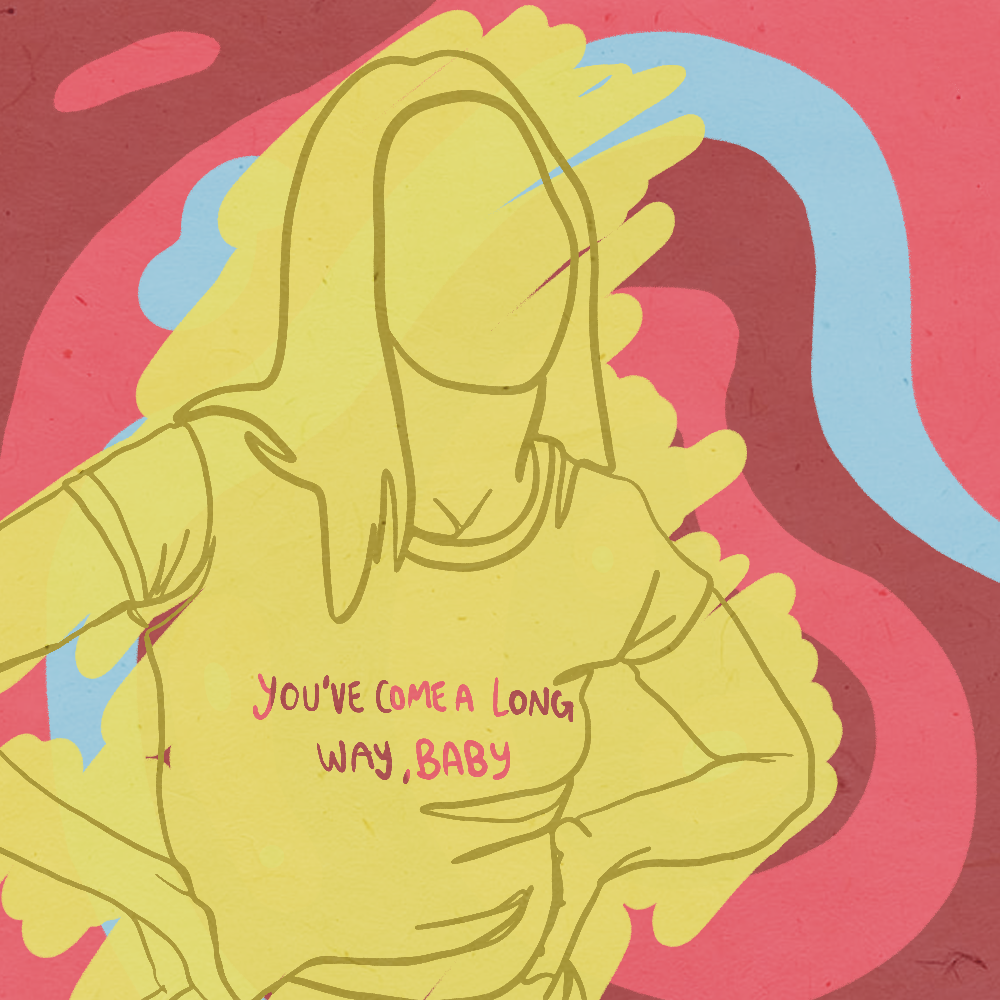Please visit response.fsu.edu for official FSU updates and resources.
Licorice Pizza: Navigating Unconventional, Fervent Dynamics

Licorice Pizza opens with a bursting toilet and adolescent boys dashing in chaos as a result; no better way exists to encapsulate a film of 1970s pandemonium and splendor.
Paul Thomas Anderson’s newest picture follows 15-year-old Gary Valentine, a waning child actor with ambitious business schemes, and Alanna Kane, a 25-year-old photographer’s assistant seeking new career ventures. Their consciously inappropriate entanglement, spurred by validation and ardor, shocks the audience, yet evokes passivity amongst the duo’s peers. One could accredit this juxtaposition to a sign of the times, but the reason for the contrasting reactions lies within the ambiguous dynamic’s ability to emphasize the most evocative versions of both Gary and Alanna. The recurring questions about their relationship make this clear. Whether it’s amidst their waterbed fiasco or their meeting with a Japanese restaurant owner, the inquiry of “what are we?” arises in perverse circumstances neither would be in without the other’s company.
Gary and Alanna’s infatuation with each other is abundant with instrumentalizing younger women or older men to make the other jealous, respectively, yet Alanna sustains a guise of plausible deniability through the film’s run. Even in their first scene together, Gary parades towards her as she walks away, initially reluctant to his advances. Alanna’s hesitancy transpires into a coalescence of curiosity and she is lured by the eager teenage boy more career-accomplished than herself. In her eyes, he’s closer to established adulthood - but still ingenuous in a way that reminds you of bright-eyed, childhood buoyancy. Everything is at his fingertips. Alanna’s navigation of her relationships with director Jack Holden or mayoral candidate Joel Wachs clarifies the gross misuse of power by the adult men who request Alanna’s presence. There’s something enticing about someone who embraces your idiosyncrasies and finds you important, and for Gary and Alanna, it’s each other.
However, their dynamic doesn’t stall any age-related jabs. When met with tension and dispute, Gary and Alanna employ maturity, or a lack thereof, as a mode of antagonizing one another. When Gary declares a pinball business after learning Los Angeles will overturn its ban, Alanna vilifies his juvenility by speaking out against his outrageous business schemes, which provokes him to call her “old.” It’s complicated when the contrast in their experiences propels a magnetism, while also becoming a tool to alienate the other from one’s personal motivations. The music that backs their escapades embodies their complex connection, especially “Stumblin’ In.” Chris Norman & Suzi Quatro sing: “You were so young, ah, and I was so free / I may have been young but baby that's not what I wanted to be.” Despite such moments of tension, Gary and Alanna resume their companionship when life goes awry, and not in a good way, without the other’s presence.
Amidst Bradley Cooper's cameo and the chaos of the ‘70s oil shortage, it remains difficult to look away from Gary and Alanna’s capricious entanglement. It’s riveting, with an inappropriate premise that one could, understandably, reject. Yet it invited me to second-guess my preconceptions of what love looks like. In bell hooks’ book, all about love, she cites psychiatrist M. Scott Peck’s definition of love as, “the will to extend one’s self for the purpose of nurturing one’s own or another’s spiritual growth.” Gary and Alanna remain consistent, with some discrepancies, in their expression of encouragement for the other to reach self-actualization, to acknowledge their potential and the sanguinity of the future. By this definition, they do love each other, even if they’re not in love. No justification exists for the pursuance of a relationship of this age gap in real life, but Paul Thomas Anderson doesn’t endorse it. This is a movie about someone who enters your life amidst a rut, propelling you into a renewed desire to live larger and reignite the quintessential idealism of not being an adult - yet. The age difference simply acts as a vehicle to denote that this figure could come from a different walk of life, even if the unconventionality unnerves you.
There’s no doubt that Licorice Pizza is a romance, though it’s a rather complicated and chaste one. There’s no grand speech professing their love or palpable physical affection, but Gary and Alanna’s cathexis undermines any traditional romance tropes missing in this film. Their mutual crush transpires right when they both need it, whether because of a confrontation with a dwindling acting profession or the aimlessness of a career path. Early in Licorice Pizza, Gary tells Alanna: “I'm never going to forget you, just like you're never going to forget me.” Perhaps that’s all you need from someone when adulthood encroaches closer to all you’ve ever known - adolescence.
Written by Jasmine Hur | Instagram
Art by Cassidy Elibol



